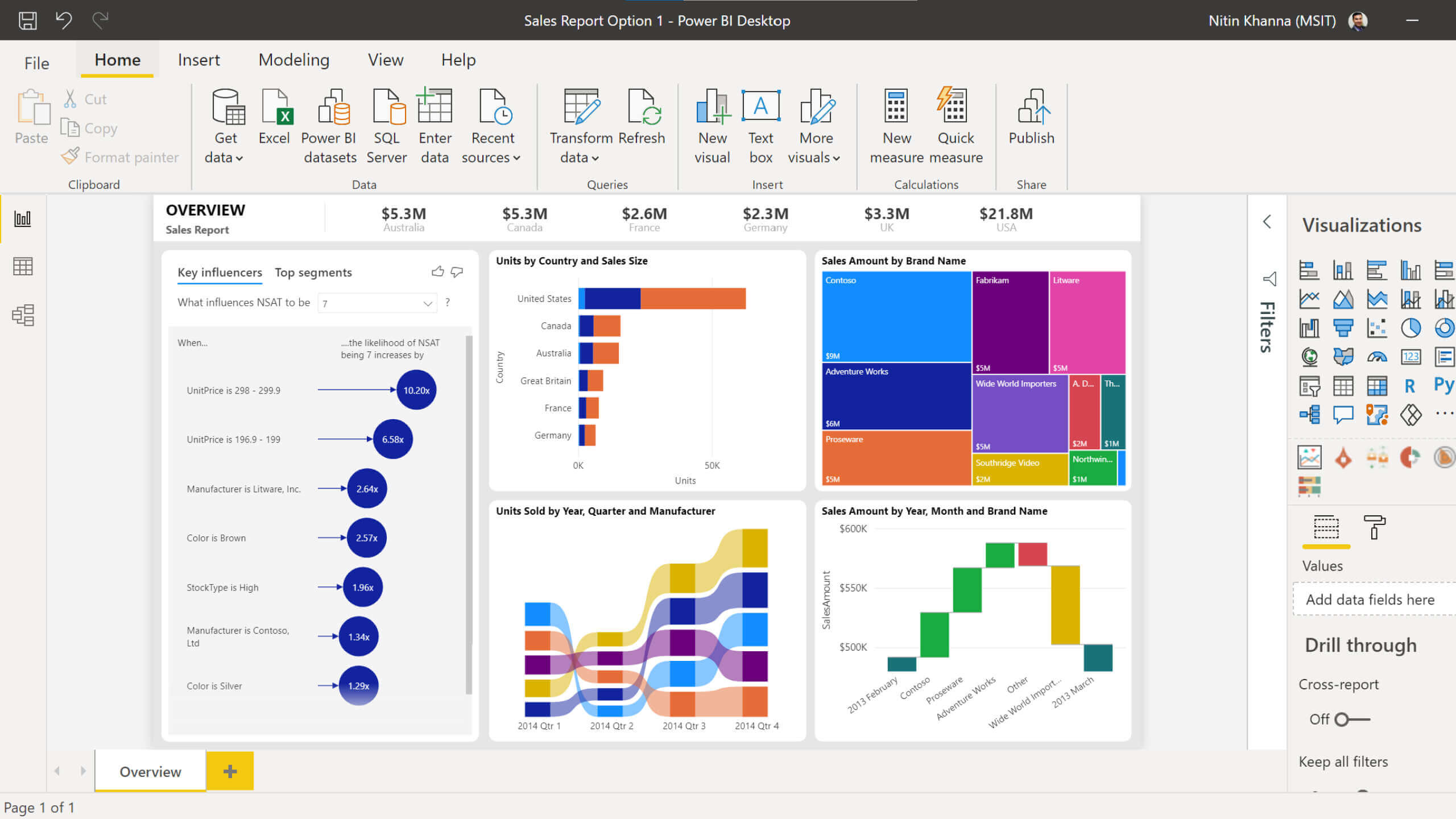Microsoft Power BI: A Powerful Tool for Data Analysis and Visualization
Data analysis and visualization are of great importance in the business world. Having access to accurate data helps businesses make better strategic decisions, and presenting this data in a meaningful way enhances information sharing and improves business processes. This is where Microsoft Power BI comes into play. Microsoft's powerful tool is designed to streamline data analysis and visualization processes.

What is Microsoft Power BI?
Microsoft Power BI is a business intelligence tool for data analysis and visualization. Businesses can use Power BI to acquire data from various sources, analyze this data, and present the results in impressive charts and reports. This helps businesses gain a better understanding of their data and make strategic decisions.
Features of Microsoft Power BI
Power BI offers users a range of features:
1. Data Connection and ImportPower BI provides integration with numerous data sources. It can connect to popular databases such as Microsoft Excel, SQL Server, and SharePoint and import data from these sources.
2. Data Modeling
Users can perform data modeling in Power BI to analyze and relate data, aiding in a better understanding of data.
3. Visualizations
Power BI allows users to visualize data using various elements like charts, tables, and maps, making data more meaningful.
4. Report Creation
Users can create impressive reports using Power BI. These reports help businesses delve deeper into data and understand the results.
5. Sharing and Distribution
Created reports and visualizations can be easily shared and distributed by users, enhancing information sharing and collaboration.
6. Mobile App Support
Power BI offers a dedicated application for mobile devices, allowing users to access data from anywhere.
Advantages of Microsoft Power BI
Using Power BI provides a range of advantages:
1. User-Friendly:Power BI features a user-friendly interface, enabling users to easily analyze data.
2. Fast Data Analysis:
Data connection and visualization processes are fast, assisting businesses in making quick decisions.
3. Real-Time Analysis:
Power BI offers real-time data analysis capabilities, allowing businesses to respond dynamically.
4. Data Security:
Power BI ensures data security and offers easy access control management.
Use Cases for Microsoft Power BI
Power BI can be used in various industries and functions:
1. Business Intelligence and AnalyticsBusinesses can use Power BI to support business intelligence and analytical work.
2. Finance and Accounting:
Finance departments can use Power BI for income-expense analysis, budget tracking, and financial reporting.
3. Sales and Marketing:
Sales and marketing teams can benefit from Power BI for customer analysis, sales performance monitoring, and campaign analysis.
4. Manufacturing and Supply Chain:
Manufacturing and supply chain management can use Power BI for inventory tracking, production efficiency, and supplier performance analysis.
Conclusion
Microsoft Power BI is a powerful tool to meet the data analysis and visualization needs. Its user-friendly interface, rich features, and various use cases allow businesses to make data-driven decisions and gain a better understanding of their data. Power BI has become an indispensable tool for data management and analysis in the business world, providing significant advantages for businesses.
